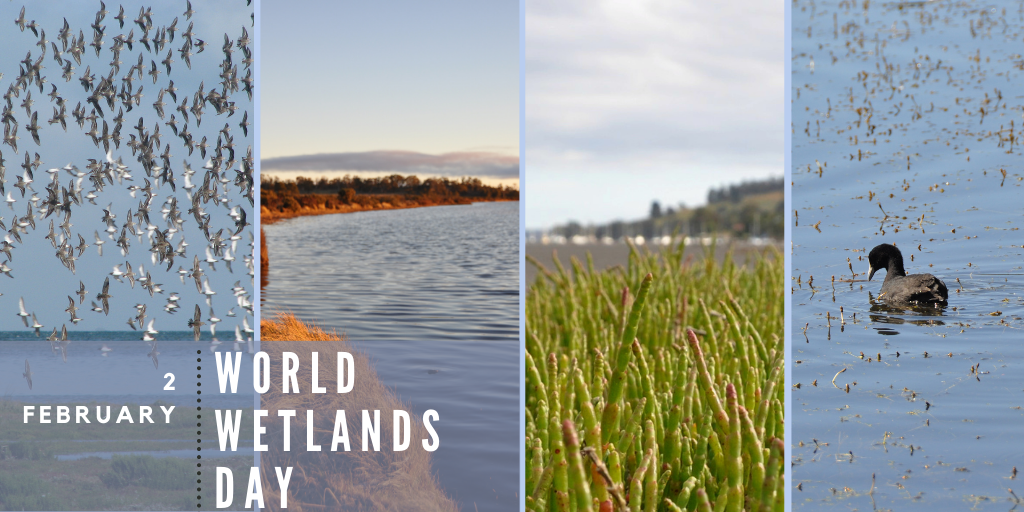February 2 is World Wetlands Day, and this year marks 50 years since the signing of the Ramsar Convention of Wetlands in Ramsar, Iran (World Wetlands Day).
Wetlands are some of the most productive habitats on the planet. They are an essential part of the global water cycle and provide water resources for crops, wildlife, stock and people. Wetlands are important in regulating the flow of water and nutrients through the landscape. They are essential habitat, serving as key breeding grounds for fish species, as well as acting as carbon sinks.
Wetlands provide overwhelming benefits to humans, but they are ecological communities under threat. Often drained or filled-in for other purposes, it’s estimated that approximately half of our global wetlands have been lost over the last century.
In Tasmania, our diverse wetland habitats range from rare sphagnum bogs in our highlands region to coastal marshes that support a host of bird and fish species. Southern Tasmania is home to four of the total 66 Ramsar sites in Australia; Moulting Lagoon, Apsley Marshes, Pitt Water-Orielton Lagoon and Interlaken.
We are partnering in projects at three of these sites. At Moulting Lagoon and Apsley Marshes on the East Coast, near Freycinet National Park, we are coordinating weed control, fencing and re-vegetation activities to protect the wetland foreshore and saltmarsh areas. We are working with local landholders and partners to fence cattle out of low productivity saltmarsh habitat, and monitor its recovery over time.
At Pittwater-Orielton Lagoon, near Hobart, we are working with landholders to restore stranded saltmarsh and rebuild fish communities.
These projects are funded through the Australian Government’s National Landcare Program and will benefit the environmental, social and economic values of our wetlands.
